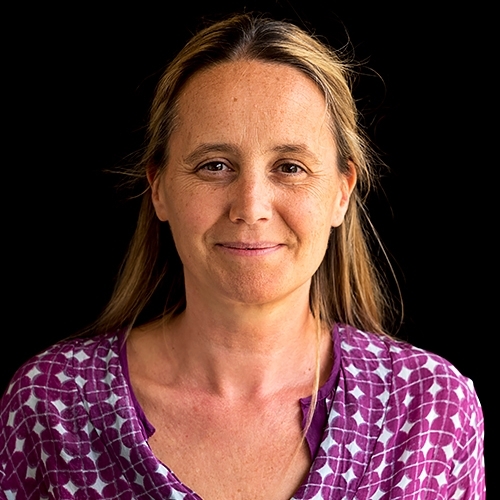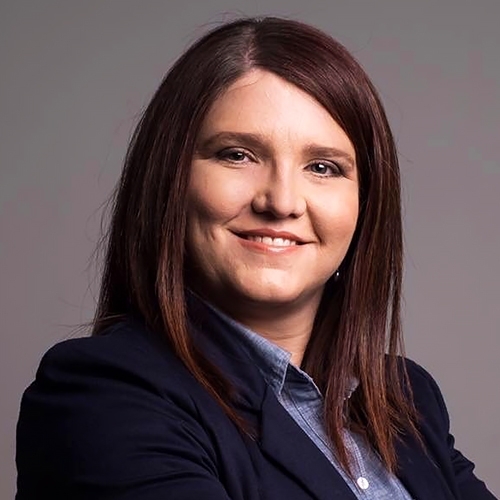
Neonatal / NICU Care Continuing Education Course Bundle #4 (10.5 Hours)
Originally offered at our GOLD Neonatal Online Conference 2020. GOLD Neonatal provides an unique educational opportunity for healthcare professionals caring for high-risk neonates.
When working with this vulnerable population and their families, it's essential to stay up to date with the new research and shifts in thinking and understanding in the neonatal field.
Gain new insights into topics such as EKG interpretation, the impact of the legalization of marijuana, the transition to home from the NICU, nurses as leaders and so much more. With speakers such as Brigit Carter, Elizabeth Sharpe, Joana Torres, Lisa Cleveland, Manuela Filippa, Mari Viviers, Minesh Khashu, Naomi Bar-Yam, Tinisha Lambeth to name just a few, this line-up of topics and speakers is not to be missed!


Manuela Filippa is researcher at the Geneva University. She received her PhD in Developmental Psychology at the University of Paris Ouest Nanterre, she studies the effects of the Early Vocal Contact - maternal direct speech and songs - on premature infant’s development in collaboration with international research centers. She is a Musician by training, she teaches Psychology of Music and Music Education at the University of Valle d'Aosta, Italy. She became an expert in the field of early interventions in at-risk populations. Her scientific works were published in a number of international journals, in a dedicated book on Early Vocal Contact and, lastly, in a Special Issue of National Geographic, January 2019.
Objective 1: Be more experts on the special orientation that newborns have towards voice at birth;
Objective 2: Increase their knowledge on the positive effects of early Vocal Contact with the preterm infants' population;
Objective 3: Ameliorate their competences on pain, parental presence and vocal contact as an analgesic tool for preterm infants's pain.
Early Vocal Contact aims to enhance closeness between preterm infants and their caregivers, principally through the medium of the voice. The specific aims of this presentation are;
(1) to give evidence the special orientation that newborns have towards the maternal voice;
(2) to explore the literature on the effects of the maternal voice on preterm infants in the neonatal intensive care unit;
(3) to identify and to describe the mechanisms through which early vocal contact acts as an early, family-based intervention for preterm infants and;
(4) to suggest some final recommendations for clinical practice.
Encouraging live vocal contact, with preterm infants, far from being only a sensory/acoustical stimulation, can activate a number of related and consequential actions (intuitive parenting, multimodal co-regulation, reciprocal synchronisation). These normal actions in full-term birth are at the foundation of bonding and attachment processes and can lead to long-term and sustained positive effects on the development of preterm infants.


Dr. Tinisha Lambeth is the Neonatal Quality Improvement Coordinator and an Assistant Professor of Pediatrics at Wake Forest School of Medicine. She coordinates quality improvement at Novant Health Forsyth Medical Center NICU as well. She is a Neonatal Nurse Practitioner and received her MSN (2004) & DNP (2014) from Duke University School of Nursing. Over the past 8 years, Tinisha has presented quality improvement work locally, nationally, & internationally. She has co-authored three publications, on the topics of cytomegalovirus, golden hour and the association of different feeding types with necrotizing enterocolitis and growth in premature infants.
Objective 1: Describe the quality improvement methodology used in the three projects presented;
Objective 2: Explain the difference between a pre-post study and a quality improvement study;
Objective 3: List three common components that contributed to the success of all three projects.
Early- and late-onset sepsis is a significant cause of morbidity and mortality in neonates. However, prolonged antibiotic administration alters the microbiome and increases the risk of necrotizing enterocolitis, sepsis, and death in very low birth weight infants and in late preterm and term infants adverse effects include ototoxicity, nephrotoxicity, increased bacterial resistance, and unnecessary costs. Empiric antibiotic therapy for early-onset sepsis and routine Vancomycin usage for late-onset sepsis was a common practice for neonates at this neonatal intensive care unit. Also, antibiotic stewardship in early- and late-onset sepsis management in the NICU posed unique challenges due to variability in provider practices. In this presentation the Model for Improvement quality improvement methodology and three quality improvement projects with a global aim to reduce antibiotic usage will be presented.


Mari is currently a clinical academic working at Evelina London Children's Hospital in the UK. She is a Clinical Specialist Speech Language Therapist with various international peer reviewed articles on neonatal feeding assessment building on the body of research presented in her PhD. She has presented at various international conferences in the USA, Africa and Europe. Her experience entails paediatric dysphagia in the acute setting with specialization in critical care and neonatal care. In her previous position as an associate professor at a university in South Africa she invested in student clinician training in the NICU setting and access to evidence based treatment for feeding disorders in infancy. Her current research interest is in mobile health application development for the Neonatal Feeding Assessment Scale for international access to a validated neonatal feeding assessment tool to identify oropharyngeal dysphagia in neonates and young infants. In addition her second tier research path is looking at the role of the speech language therapist in PICU. To support the wider clinical and scientific community she is a member of the European Society for Swallowing Disorders as well as an international affiliate member of the Royal College of Speech Language Therapists.
Objective 1: Engage with the theoretical framework for evidence based assessment of neonatal and infant feeding;
Objective 2: Understand the validity and reliability of the Neonatal Feeding Assessment Scale (NFAS);
Objective 3: Reflect on the use of the NFAS as part of the feeding assessment that could be offered in an NICU.
A dearth of validated neonatal feeding assessment instruments are available in an era where medical teams are challenged to demonstrate the evidence base of the services that are provided to neonates. The Neonatal Feeding Assessment Scale (NFAS) was developed to identify oropharyngeal dysphagia with identification of subsequent airway invasion during feeding in neonates. This presentation will take the delegates on a journey through the landscape of evidence, the research process for developing the NFAS and how the NFAS can be used in everyday practice in the NICU to support better feeding outcomes for neonates within their family context.


Dr. Brigit Carter, Associate Professor and Associate Dean for Diversity and Inclusion, joined the Duke University School of Nursing (DUSON) in 2010. From 2015-2018 she served as the Director of the DUSON Accelerated Bachelor of Science in Nursing (ABSN) program. Dr. Carter earned her BSN at North Carolina Central University in 1998, a Master of Science in Nursing Education from University of North Carolina at Greensboro in 2002 and PhD in Nursing from University of North Carolina at Chapel Hill in 2009. She served as project director for two HRSA Nursing Workforce Diversity grants. The current grant, The Academy for Academic and Social Enrichment and Leadership Development for Health Equity II, focus is to increase underrepresented minorities in nursing and understanding of individual social determinants among undergraduate nursing students. Dr. Carter teaches the DNP and ABSN programs.
Dr. Carter's clinical research focuses on nursing care of premature infants (<1500 grams) with feeding intolerance and identification of measurable methods for early detection of feeding intolerance. She continues her clinical practice as a staff nurse in the Duke University Hospital Intensive Care Nursery, where she has 21 years’ experience.
Dr. Carter retired in 1/2018 from the U.S. Navy as a Commander after 28 years of service.
Objective 1: Describe reliable non-radiology measures of feeding intolerance for preterm infants;
Objective 2: Determine feeding intolerance indicators that are reportable to health care providers;
Objective 3: Identify triggers for feeding intolerance in preterm infants;
Objective 4: Describe standard of care practices for managing feeding intolerance for preterm infants.
Current methods used to identify feeding intolerance signs/symptoms in preterm infants rely heavily on nurses’ physical assessment and reporting of symptoms to the health care provider (HCP). Feeding intolerance, for the purposes of this discussion, is defined as “experiencing difficulty with the ingestion or digestion of formula or breast milk that causes a disruption in the current enteral feeding plan due to the manifestation of one or more of defined clinical symptoms including gastric residuals (>50% of feeding volume), abdominal distention, appearance of the abdomen (changes in color or suppleness), emesis and changes in the stool (minimal or lack of)” (Carter, 2012). It is critical to evaluate these assessment strategies to determine how reliable they are in identifying progression to feeding intolerance and more serious conditions such as necrotizing enterocolitis. Because the guidelines often vary by institutions, this can often be disadvantageous. However, the literature does provide some very consistent support and agreement on what is considered more reliable non-radiology measures that indicate a preterm infant is progressing to feeding intolerance. In addition, there are well known triggers for feeding intolerance that should be considered. There are also future methods, such as intra-abdominal pressure monitoring, that may be on the horizon for predicting feeding intolerance in preterm infants that are presently used in pediatric and adult populations.


Dr. Elizabeth Sharpe is a neonatal nurse practitioner and vascular access specialist with over 25 years of experience in Level II and Level III NICUs. She is an Associate Professor Clinical Nursing at The Ohio State University and Specialty Track Director of the Neonatal Nurse Practitioner Specialty in the Master of Science Graduate Nursing Program. Her unique contributions focus on education, vascular access, simulation, and harm prevention. She is the coauthor of the National Association of Neonatal Nurses (NANN) Guideline for Practice: Neonatal Peripherally Inserted Central Catheters, 3rd Edition, and has authored numerous publications. Dr. Sharpe has served two terms on the Board of Directors of the National Association of Neonatal Nurses (NANN.org) and currently serves as the NANN liaison to the Council of International Neonatal Nurses. She was honored to be named the 1st Janet Pettit Scholar by the Association for Vascular Access (avainfo.org) and a Fellow of the American Association of Nurse Practitioners and the National Academies of Practice.
Objective 1: Identify at least four types of vascular access options for the neonate;
Objective 2: Describe appropriate placement for each of the types of vascular access;
Objective 3: Discuss at least two common complications associated with each type of vascular access.
Our special babies present unique challenges in vascular access. This presentation will highlight different methods of vascular access in neonates and infants including anatomy, therapy and patient characteristics. This will provide baseline information regarding guidelines for proper placement of umbilical catheters, surgically-inserted, peripherally inserted central catheters (PICC), midline and peripheral intravenous catheter. This is essential to building the knowledge base of new nurses and will update advanced neonatal nurses.


Dr. Joana Torres received her medical degree from the University of Coimbra, Portugal, and completed her fellowship in Gastroenterology at the Hospital Center of Coimbra, Portugal. She spent 3 years at Icahn School of Medicine at Mount Sinai, NY, USA working on research projects in the field of IBD. She is currently working in Hospital Beatriz Ângelo, Loures, Portugal as a Gastroenterology Assistant and she is Adjunct Assistant Professor at Mount Sinai, NY. She is the President of the Scientific Committee of the Portuguese IBD Group and an active member of the European Crohn and Colitis Guideline committee (GuiCom). Her research focuses on populations at risk for developing inflammatory bowel disease with the goal of better understanding events taking place before the disease is diagnosed.
Objective 1: To review the evidence linking early life risk factors, including feeding, on the risk of IBD;
Objective 2: developed and how it may affect risk of disease;
Objective 3: To discuss breastfeeding in IBD.
Inflammatory Bowel Disease is a chronic immune-mediated disease with increasing epidemiology. IBD results from a complex relationship between genetic susceptibility, environmental factors and intestinal microbiota, resulting in a self-perpetuating abnormal mucosal immune response. Increasing epidemiological evidence suggests that early life events and childhood exposures may be important for determining the risk of IBD. One of the most important early life exposures is diet: breastfeeding (BF) or formula feeding may impact microbiome development, which in turn may modulate immune system maturation. In this presentation I will review the benefits of BF, the evidence suggesting the role of BF in IBD, the impact of BF on the developing microbiome, and debate the issues of breastfeeding in patients with IBD.


Dr. Lisa Cleveland is a Pediatric Nurse Practitioner and a tenured Associate Professor at UT Health San Antonio, School of Nursing. Her innovative research with mother-infant dyads impacted by opioid use has contributed to changes in clinical practice and improved outcomes. Her recovery residence, Casa Mia, is a collaborative partnership between the School of Nursing and the nonprofit, Crosspoint, Inc. Casa Mia provides safe and supportive housing for pregnant and parenting women with opioid use disorder where they can recover with their children.
In addition, the findings of Dr. Cleveland’s Maternal Opioid Morbidity Study are providing insight into the contextual factors surrounding maternal opioid use relapse and overdose deaths; the leading cause of maternal mortality in TX and a growing cause nationwide. Dr. Cleveland is now developing and psychometrically analyzing a brief screening instrument to help identify women at-risk for overdose death so they may be referred to life-saving resources. Further, Dr. Cleveland is leading the Texas Targeted Opioid Response to ensure access to Narcan: https://www.morenarcanplease.com/, and opioid overdose identification and reversal education. She is also leading a community paramedicine project to prevent overdose, increase the use of peer recovery services, and improve access to treatment.
Objective 1: Describe best practices in the management of Opioid Use Disorder (OUD) in pregnant/parenting women;
Objective 2: Explain Neonatal Abstinence Syndrome (NAS) and recommended management strategies;
Objective 3: Discuss innovative research and programs focused on the care of pregnant/parenting women with OUD and infants with NAS.
Between the 2000 and 2009, the use of opioids, such as heroin or prescription pain relievers, during pregnancy increased fivefold. Prenatal opioid exposure can result in newborn withdrawal symptoms often called Neonatal Abstinence Syndrome (NAS). NAS can include inconsolable crying, sleeplessness, and poor feeding. National rates of NAS have tripled since 2000. Opioid detoxification during pregnancy is not recommended and is linked to preterm labor and fetal distress. Therefore, it is recommended that pregnant women with opioid use disorder be stabilized on medication assisted treatment (MAT). However, these medications may still result in newborn withdrawal.
Treatment of NAS is typically focused on symptom management using soothing techniques and medications. Soothing techniques are non-pharmacological comfort measures and are considered the first line of care for infants with NAS. However, these techniques can be difficult to implement in a busy nursery environment. Medications may alleviate some NAS symptoms but, the use of medication is linked to a longer and more costly hospital stay and prolonged separation of mother and infant. As such, the purpose of this presentation is to explore best practices in the care of the opioid impacted mother-infant dyad with an emphasis on the important role of the biological mother.


Dr. Narvey began his training in Pediatrics at the University of Manitoba in Winnipeg where he completed a year of further training in Neonatology. This was followed by two years of Neonatal fellowship at the University of Alberta in Edmonton. Afterwards he began his career as a Neonatologist in the same city and over the 6 years he spent there, his career included both clinical and administrative duties including 4 years as the Fellowship Program Director and two years as the Medical Director for a level II unit. In late 2010 he accepted a position in Winnipeg to become the Section Head of Neonatology and continues to hold this post. In 2016 he took on the additional role of Medical Director of the Child Health Transport Team. In 2015 he became a member of the Canadian Pediatric Society’s Fetus and Newborn Committee and in 2019 took over as Chair of the same. His interests predominantly lie in the use of non-invasive technology to minimize painful procedures during an infants stay in the NICU. He is active on social media and has a passion for fundraising and is an active board member of the Children’s Hospital Foundation of Manitoba.
Topic: Human Milk Diet and Fortification: Controversies and Evidence - [View Abstract]
Topic: Many Different Shades of Yellow - [View Abstract]
Topic: Respiratory Problems in the Newborn: Where Are We in 2022? - [View Abstract]
Topic: Sweet and Sour: Hypoglycemia in the Newborn - [View Abstract]
Objective 1: Determine whether exclusive human milk diets lead to better short and long term outcomes.
Objective 2: Explain the potential importance of human milk oligosaccharides (HMOs).
Objective 3: Examine changes in the intestinal microbiome related to changes in exposure to human milk or formula in preterm infants.
Research supporting the use of exclusive human milk diets will be reviewed. From there we will look at the evidence for improving both short and long term outcomes and then determine what other options exist and where we might be headed in neonatal nutrition.


Prof. (Dr.) Minesh Khashu M.B.B.S, MD, FRCPCH, FRSA, Q Fellow ( Health Foundation & NHS Improvement), Fellow England Centre for Practice Development Consultant Neonatologist, Poole Hospital NHS Foundation Trust & Prof. of Perinatal Health, Bournemouth University. Clinical Director, Maternity & Neonatal Care, Regional Strategic Clinical Network, NHS England, Wessex Dr. Khashu has received national and international recognition for his work especially in Quality Improvement, Necrotizing Enterocolitis and improving fathers experiences of neonatal care. Dr. Khashu is a clinical leader reimagining healthcare with a focus on system wide transformation, continuous Quality Improvement and Patient Centred Care. He has experience of clinical management and leadership at hospital, regional and national level including strategic change, system redesign, large scale quality improvement and development of national guidance and multi stakeholder collaboration. He has developed the DadPad Neonatal, a resource to support dads whose babies have been admitted to neonatal units. This has been very well received by parents, families, healthcare professionals and charities and nominated for multiple national awards. https://thedadpad.co.uk/neonatal/ He has also set up SIGNEC (special interest group for NEC) in the U.K. and developed a website for parents/families and health professiaonals which has been much appreciated. https://signec.org/ He convenes International Conferences on NEC in London regularly.
Objective 1: Better understand current experiences of fathers;
Objective 2: Take home key principles and practical recommendations to improve their own practice;
Objective 3: Explore some examples of good practice for use in their own service.
The presentation will cover current evidence of suboptimal practice in terms of fathers expereinces within maternity and neonatal services, our specific recommendations to improve practice and my development of DadPad Neonatal as a specific resource to improve experiences of fathers.
We have reviewed the literature on engaging fathers in neonatal units, with the aim of making recommendations for improving experience of fathers as well as health outcomes in neonatal practice. Fathers typically describe the opportunity to bond with their babies in glowing terms of gratitude, happiness and love. These experiences are underpinned by hormonal and neurobiological changes. We find that engagement with fathers remains sub-optimal. Fathers, also, are subject to different social expectations from mothers, which shapes how they respond to the situation and how neonatal staff treats them.
We have put forth 3 core principles and 12 practical recommendations for neonatal teams to focus on.


Naomi Bar-Yam, PhD, ACSW, has been working in maternal and child health for over 30 years as an educator, researcher, advocate, and writer. She is the immediate past president of the Human Milk Banking Association of North America (HMBANA) and the founding director of Mothers’ Milk Bank Northeast, which provides safe donor milk to hospitals and families throughout the northeastern US. An expert on access to perinatal health care and policies that support breastfeeding, she has been a consultant to the Centers for Disease Control (on a panel that created “The CDC Guide to Breastfeeding Interventions”), to the United States Breastfeeding Committee (developing an issue paper addressed to CEOs and legislators on breastfeeding and the workplace), and to the March of Dimes (developing educational material for women and families who are medically and socially vulnerable to high-risk pregnancy). She also developed a curriculum for hospital personnel about combining breastfeeding with their work. She reviews articles submitted to the Journal of Human Lactation, Breastfeeding Medicine, and other publications related to breastfeeding, milk banking, and access to perinatal child care. As Executive Director of Mothers’ Milk Bank Northeast, she is thoroughly versed in the technical, procedural, and ethical aspects of milk banking. She often speaks at professional conferences, hospital staff trainings, and grand rounds about milk banking and breastfeeding policies.
Topic: Ethical Concerns in Human Milk Exchange - [View Abstract]
Topic: Getting Milk to Babies: Social, medical, economic and commercial forces - [View Abstract]
Topic: The Whys and Hows of Using Banked Donor Milk - [View Abstract]
Objective 1: Describe an overview of prematurity worldwide;
Objective 2: Define what a team is and what is /who is on a NICU team;
Objective 3: List 4 team tools for successful outcomes.
This talk uses research literature and hospital policies and programs to explore ways for families of babies in the NICU to be meaningful and active members of the NICU care team. We will look at a global snapshot of prematurity; define what a team is and who is on the NICU care team; and discuss the short- and long-term goals of the NICU care team, as well as many tools and strategies that team members and the team as a whole have at their disposal to reach those goals. Can be adapted for US or global audiences.
Accreditation
CERPs - Continuing Education Recognition Points GOLD Conferences has been designated as a Long Term Provider of CERPs by the IBLCE--Approval #CLT114-07. This program is approved for 10.5 CERPs (8.25 R-CERPs) (2.25 L-CERPs).
If you have already participated in this program, you are not eligible to receive additional credits for viewing it again. Please send us an email to [email protected] if you have any questions.Additional Details
Viewing Access Time: 8 Weeks
Tags / Categories
(IBCLC) Development and Nutrition, (IBCLC) Infant, (IBCLC) Infant, (IBCLC) Maternal, (IBCLC) Pharmacology and Toxicology, (IBCLC) Psychology, Sociology, and Anthropology, Antibiotic Use in the NICU, Breastfeeding Strategies for the Preterm Infant, Family-Centered Care, Neonatal Abstinence Syndrome, Neonatal Screening, Neonatal Substance Exposure, NICU Nutrition & Feeding, Parents in the NICU
How much time do I have to view the presentations?
- The viewing time will be specified for each product. When you purchase multiple items in your cart, the viewing time becomes CUMULATIVE. Ex. Lecture 1= 2 weeks and Lecture Pack 2 = 4 Weeks, you will have a total of 6 weeks viewing time for ALL the presentations made in that purchase.
- Time for viewing the talks begins once you purchase the product. For Live Webinars & Symposiums, the viewing period begins from when the live event takes place. Presentations can be accessed 24/7 and can be viewed as many times as you like during the viewing period.
What are bundled lectures?
- Presentations may be available individually or via a bundled package. Bundled lectures are a set of lectures that have been put together based on a specific category or topic. Some lectures will be available in both individual and lecture form, whereas others will be available only via a bundled lecture pack.
Will there be Handouts?
- YES! Each lecture comes with a PDF handout provided by the Speaker.
Some lectures include a Q&A, what does that mean?
- During our online conferences, presentations that occur live are also followed by a short 15 minute Question & Answer Session. The Speaker addresses questions that were posted by Delegates during the presentation. We include the recording of these Q&A Sessions as a bonus for you.
How can I receive a Certificate?
- If this presentation offers a certificate, once you are done viewing the lecture or the lectures within a bundle, submit your attendance record in order to be able to download your certificate. You'll be able to see which credits are offered for the lecture by hovering over the "Credits Available" link within the "Speakers & Topics" tab.
Professionals that selected this package also viewed

|
|

|











